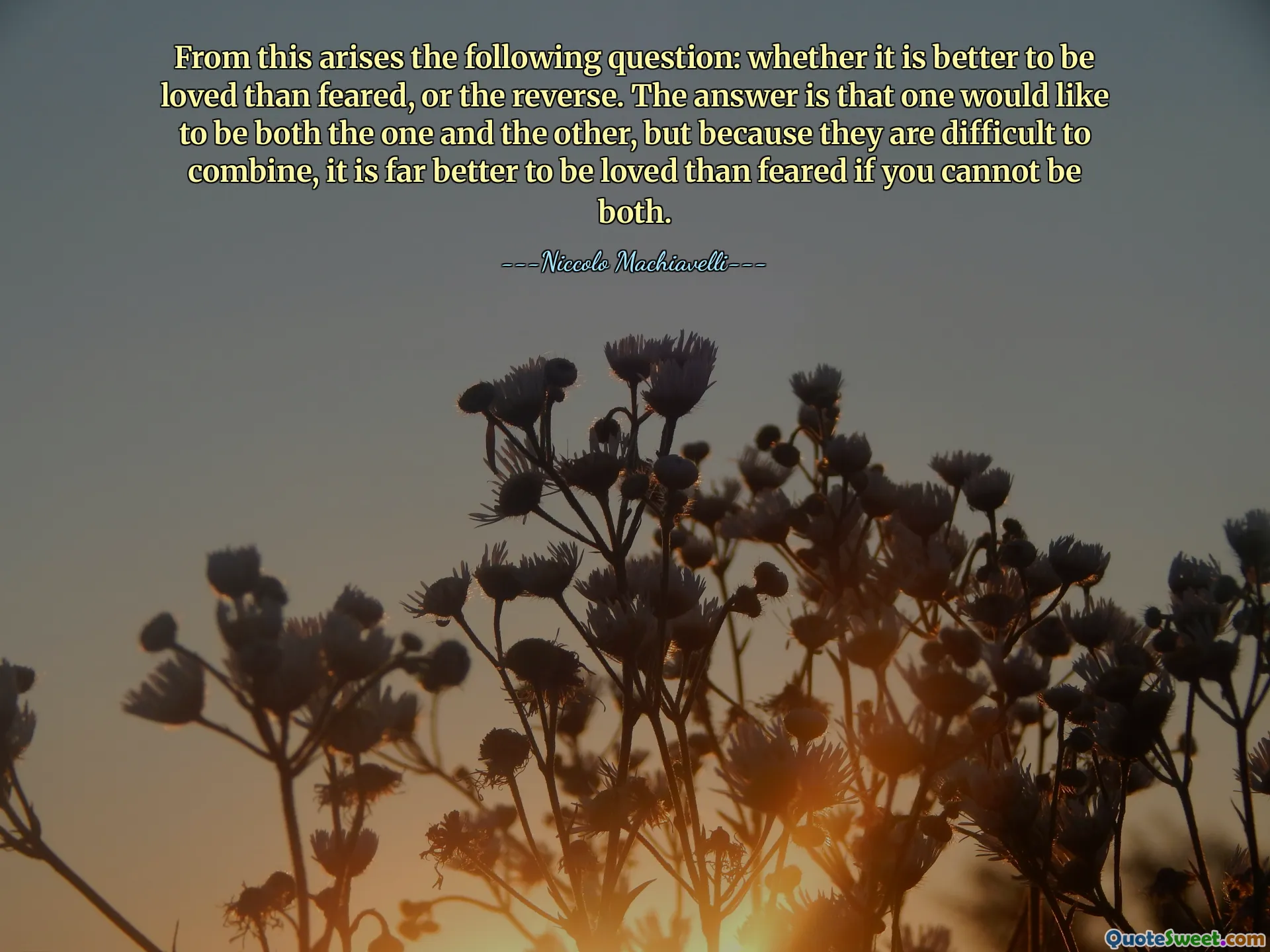
From this arises the following question: whether it is better to be loved than feared, or the reverse. The answer is that one would like to be both the one and the other, but because they are difficult to combine, it is far better to be loved than feared if you cannot be both.
This quote highlights the delicate balance between affection and authority in leadership and influence. Niccolò Machiavelli explores a fundamental dilemma: whether it is preferable for a leader or ruler to be loved by their constituents or feared by them. The ideal situation—being both loved and feared—is often unattainable in practical politics because the two emotions tend to conflict; what inspires affection might be perceived as weakness, while instilling fear might undermine loyalty and moral integrity. Machiavelli suggests that if one must choose a strategic stance, it is safer and more advantageous to cultivate love rather than fear. Love engenders trust and genuine loyalty, fostering support through positive bonds, whereas fear, though potentially effective in maintaining control, risks breeding resentment and rebellion. The insight here emphasizes pragmatic realism—recognizing human nature and the complexities of influence. Leaders must understand that striving for love creates a more sustainable and stable authority, especially because fear can breed lasting animosity if misused. This perspective is relevant not only in political leadership but also in organizational management and personal relationships, where balance, perception, and trust play crucial roles. Ultimately, Machiavelli advocates for a nuanced approach to power—one that prioritizes esteem and moral persuasion over coercion, ensuring endurance without total domination through fear. Such wisdom endures because it speaks to the universality of human motivations and the importance of moral considerations in leadership strategies.











